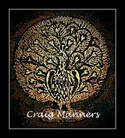|
The Sexual Revolution and Cultural Marxism
Ideology over Public Health By: Eric Metaxas|Published: August 10, 2016 6:00 AM So, it’s OK to warn people about the dangers of drinking too much soda, but not about risky sexual behavior? Welcome to the strange world of cultural Marxism. Christians are sometimes accused of being “in denial,” especially when it comes to matters of sex. But after reading about a recent AIDS conference, I have to ask: Who’s really living in fantasy land? At the recent UN international AIDS conference in South Africa, the actress Charlize Theron announced that HIV “has no biological preference for black bodies, for women’s bodies, for gay bodies . . . HIV is not just transmitted by sex,” she explained. “It’s transmitted by sexism, racism, poverty, and homophobia.” Matthew Hanley, a Senior Fellow with the National Catholic Bioethics Center, writes at Mercatornet that while it was Theron who made these nonsensical remarks, they could have been made by almost any professional at the conference. When Theron says AIDS is not spread just by sex, “she means to direct attention away from sex itself, to minimize its primary role, and to shift ultimate [blame] anywhere else.” “Statements like these,” Hanley adds, “sound less like medicine than a strand of Marxism—cultural Marxism.” Marxism has “morphed away from the sphere of economics and into the sexual revolution,” he explains. This means that “every form of sex has necessarily come to be regarded … as equal; therefore . . . Nothing must jeopardize the truly radical assertion that there are no differences in the arena of sexuality . . . Objective hazards must be repackaged to conform to the value assigned to sexual behavior—which is something we don’t do for other public health matters.” For instance, nobody says smoking cigarettes or drinking huge amounts of sugary drinks is healthy and normal--or distributes pills in schools to offset the effects of tobacco and sugar. Instead, we urge young people to avoid cigarettes altogether, and cut down on the soft drinks. But heaven forbid we tell them to avoid sex. The United Nations isn’t the only place we're witnessing an absolute refusal to acknowledge that all sex is not equal when it comes to public health. Dr. Paul Church, a member of the Harvard Medical School faculty, was fired from his position at Beth Israel Deaconess Medical Center last year for telling the truth about homosexual behavior: That, as Bryan Fischer writes at barbwire.com, it “leads to a higher incidence of HIV/AIDS, STDs, hepatitis, parasitic infection, anal cancers, and psychiatric disorders.” This, folks, is a new form of totalitarianism. As Hanley explains, those who seek to promote the equality of all sexual behavior—married, unmarried, gay or straight--“seek to triumph by means of the will” and by “various forms of coercion.” The idea that nothing should interfere with sexual pleasure goes back a long way. In 1930, Austrian psychoanalyst Wilhelm Reich wrote a book titled “The Sexual Revolution,” in which he announced that ideas—particularly moral ideas--that diminish sexual happiness should not be tolerated. By contrast, Christianity teaches that sex was designed by God and should be reserved for monogamous, life-long marriage between one man and one woman. Sex within marriage is intrinsically linked to complementary love and childbearing. When we hear people spouting off about the so-called “equality” of any and all forms of sexual behavior, claiming that the wrong attitudes cause disease, or attempting to punish anyone who dares to point out the truth about health risks, we need to help our families and friends understand where all this comes from. Ultimately, it’s a rejection of God’s loving—and healthful--design for sexuality. BreakPoint.org
0 Comments
Your comment will be posted after it is approved.
Leave a Reply. |
Craig MannersWhile much of what is written in this Blog may currently appear to be counter-cultural, given our post-truth culture, it is in no way counter-human beings. I am always for people no matter what they think, do, or may have done in their past. Where I put forward ideas or debate against certain ideology, behaviour, ideas, movements, politics, I remain very much on the side of the human beings even though I may be opposed to their worldview, behaviour and politics. Such opposition is generally out of concern for the ultimate consequences of such behaviour or ideas, especially for children. |
- Africa
- Reflections by Craig Manners
-
Articles by Craig Manners
- While We Wait by Craig Manners
- Written on our Hearts by Craig Manners
- Cure for Death by Craig Manners
- Perfect Justice, Perfect Mercy. Only God Could do This. By Craig Manners
- Authority By Craig Manners
- Creation and Providence by Craig Manners
- Forgiveness by Craig Manners
- All Things for Good by Craig Manners
- A Complete Education by Craig Manners
- Humans. Moral beings or not?
- Soviet Era Mass Conversion Therapy Mind Control Set to Control the West by Craig Manners
- On the Road to Adelong by Craig Manners >
- What is Christianity all about? >
- Note Pad
- To be Frank!
- A Cultural Revolution
- Wanted: Men who Understand the Times
- Grieved by the Grievance Virus
Contact Craig Manners
Copyright Craig Manners © 2016 to 2019
